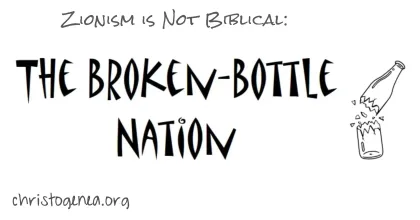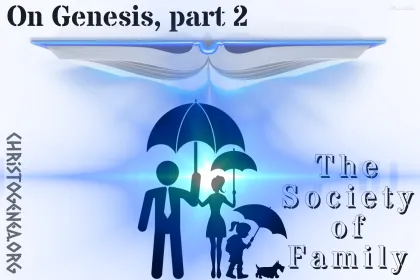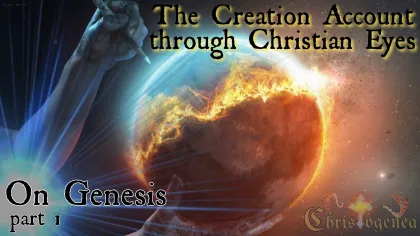Zionism is Not Biblical: The Broken-Bottle Nation

Zionism is Not Biblical: The Broken-Bottle Nation
There are many references to Jerusalem, to the “daughter of Jerusalem” or to the “daughter of Zion” in the words of the prophets, but it should not be taken for granted that they always refer to the city or mountain in ancient Judaea, or especially to modern Jerusalem. Rather, it is evident in the Old Testament that “the daughter of” something such as a city or a nation is a reference to the people who are produced by that city or nation, or their circumstances, regardless of where they are at the time when they are described. One example of this is where Tyre, the merchant city, is called the “daughter of Tarshish” in Isaiah chapter 23, evidently because Tyre became a very wealthy city by engaging in trade with Tarshish, which is evident in the historical books of Scripture.
Another example of this is found in Isaiah chapter 62 where we read: “11 Behold, the LORD hath proclaimed unto the end of the world, Say ye to the daughter of Zion, Behold, thy salvation cometh; behold, his reward is with him, and his work before him. 12 And they shall call them, The holy people, The redeemed of the LORD: and thou shalt be called, Sought out, A city not forsaken.” There the phrase “daughter of Zion” is a metaphor describing the “holy people”, the “redeemed of the Lord”, and also “a city not forsaken”, because they would be redeemed. These are all references to the people themselves, the people being a “holy city” regardless of where they are, and the people being the “daughter of Zion” regardless of where they are. So when they were called these things, Isaiah was told that Yahweh had proclaimed these words “unto the end of the world”, where the word for world is ארץ, or erets, which means land. More frequently, the same phrase is translated “the ends of the earth” because the children of Israel were also prophesied to be spread out to the ends of the earth in their captivity.








 Please click here for our mailing list sign-up page.
Please click here for our mailing list sign-up page.








Recent comments